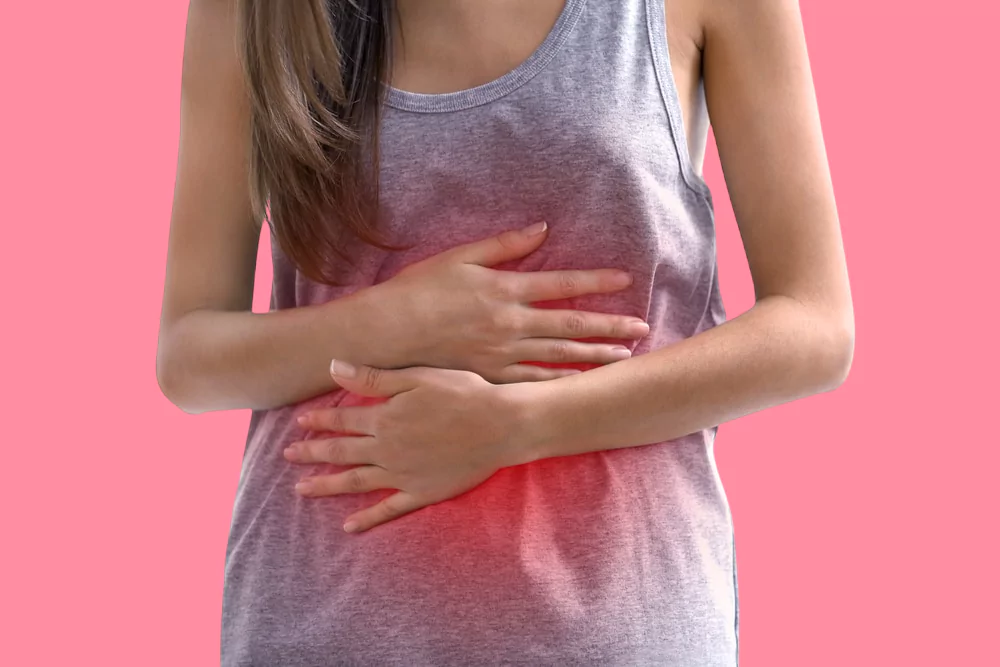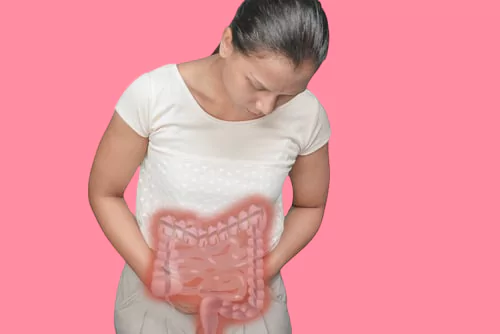Many women face chronic digestive problems that may have similar symptoms but differ in their causes and treatment.
The most prominent of these conditions are irritable bowel syndrome (IBS) and ulcerative colitis (UC). Despite their apparent similarity, the nature of the disease and its impact on the body are significantly different, as shown below.
What is irritable bowel syndrome (IBS)?
IBS is a functional gastrointestinal disorder caused by a disruption in bowel movements and their response to psychological stress or certain foods.
IBS does not cause inflammation of the intestines; rather, it is limited to disturbances in their functions, such as bloating, gas, and abdominal pain.
What is ulcerative colitis (UC)?
Ulcerative colitis (UC) is a chronic autoimmune disease in which the immune system attacks the lining of the large intestine, causing inflammation and ulcers that extend throughout the colon.
It is a type of chronic inflammatory bowel disease that can lead to serious complications if not treated properly.
The Difference Between Irritable Bowel Syndrome and Ulcerative Colitis
There are fundamental differences between the two conditions in terms of causes, symptoms, and treatment, as follows:
Cause:
- Irritable bowel syndrome is caused by stress or diet.
- Ulcerative bowel syndrome is caused by an immune dysfunction.
Nature:
- Irritable bowel syndrome is a functional disorder.
- Ulcerative bowel syndrome is a chronic inflammatory disease.

Symptoms:
- Irritable bowel syndrome causes bloating and pain without blood.
- Ulcerative bowel syndrome causes bloody diarrhea and weight loss.
Tests:
- Irritable bowel syndrome does not show up in tests.
- Ulcerative bowel syndrome shows up in endoscopy.
Treatment:
- Irritable bowel syndrome depends on lifestyle.
- Ulcerative bowel syndrome requires anti-inflammatory medications.
Symptoms of Irritable Bowel Syndrome in Women
Symptoms appear frequently and may worsen during periods of stress or during menstruation. The most prominent symptoms include:
- Abdominal pain that subsides after defecation.
- Recurrent bloating and gas.
- Constipation, diarrhea, or alternating between the two.
- Feeling of incomplete defecation.
- General fatigue and chronic headaches.
Symptoms of ulcerative colitis in women
They differ from irritable bowel syndrome (IBS) because they result from actual inflammation of the intestine. The most important symptoms include:
- Recurring diarrhea with blood or mucus.
- Severe abdominal pain, especially on the left side.
- Weight loss and loss of appetite.
- Anemia due to chronic bleeding.
- Sometimes a slight fever.
Diagnosis of Irritable Bowel Syndrome and Ulcerative Colitis
Diagnosis is based on a series of tests, as follows:
- Medical history and physical examination.
- Blood and stool tests to rule out infection or inflammation.
- A colonoscopy, which identifies ulcers or inflammation.
- In IBS, physical changes are not detected on tests.
Methods of Treating Irritable Bowel Syndrome

Treatment relies on controlling symptoms and avoiding triggers, such as:
- Eating a balanced diet rich in fiber.
- Avoiding fatty and gas-causing foods.
- Managing stress and psychological pressure.
- Exercising regularly.
- Use bowel-soothing medications when needed.
Ulcerative Colitis Treatment Methods
Ulcerative colitis requires close medical follow-up and long-term treatment, including the following:
- Anti-inflammatory medications such as aminosalicylic acids.
- Immunosuppressive medications in severe cases.
- Taking iron and vitamin supplements to replace lost fluids due to bleeding.
- Adhering to a bowel-friendly diet.
- In some advanced cases, surgical intervention may be recommended.
Complications of Ulcerative Colitis
If left untreated, ulcerative colitis may cause complications such as:
- Chronic bleeding leading to anemia.
- Intestinal perforation or stricture.
- Increased risk of colon cancer.
- Severe weight loss and malnutrition.
Tips for Prevention and Coping with Irritable Bowel Syndrome and Ulcerative Colitis
To reduce symptoms and improve quality of life, follow the following tips:
- Eat small, regular meals.
- Avoid spicy and fried foods.
- Drink plenty of water.
- Get adequate sleep and avoid stress.
- Regular follow-up with a doctor if symptoms recur.
Does irritable bowel syndrome (IBS) turn into ulcerative colitis?
No, IBS does not turn into ulcerative colitis because it is not an inflammatory bowel disease. However, the symptoms may be similar, making an accurate diagnosis essential.
Does ulcerative colitis affect pregnancy?
In some cases, ulcerative colitis may affect the chances of pregnancy if the condition is unstable. Therefore, the inflammation must be controlled before planning a pregnancy.
Does stress cause ulcerative colitis?
Stress does not cause ulcerative colitis, but it may exacerbate symptoms in the patient, while it plays a major role in exacerbating IBS.
Can IBS be cured permanently?
There is no definitive cure, but symptoms can be largely controlled through dietary and lifestyle modifications.
Is ulcerative colitis curable?
Ulcerative colitis is a chronic disease, but long periods of remission can be achieved by adhering to the treatment and diet recommended by the doctor.
Article Summary
Irritable bowel syndrome (IBS) and ulcerative colitis may have similar symptoms, but their cause and treatment are completely different.
Therefore, it is essential to consult a doctor when any chronic symptoms appear to determine an accurate diagnosis and develop an appropriate treatment plan that maintains the health of the woman's digestive system.